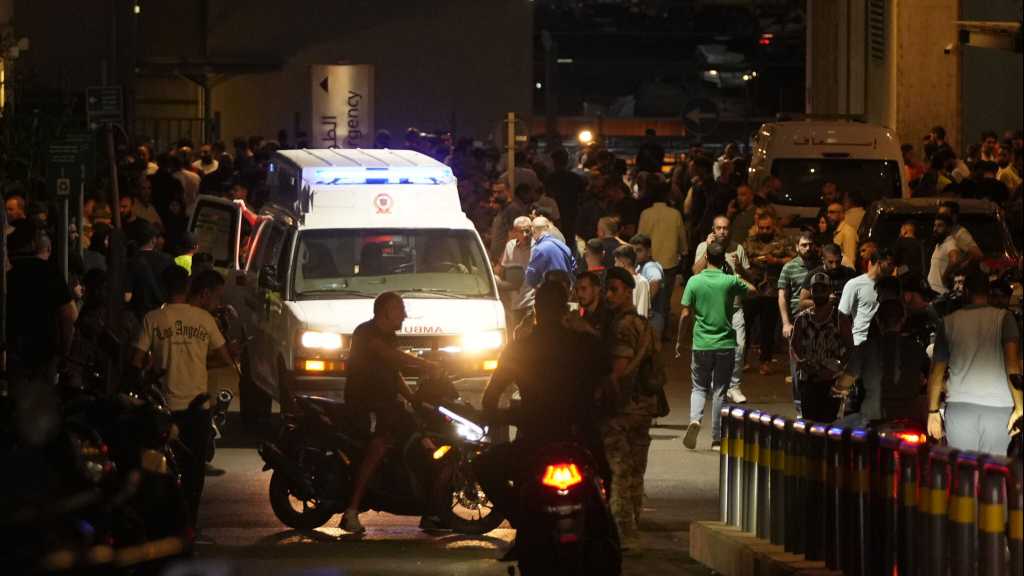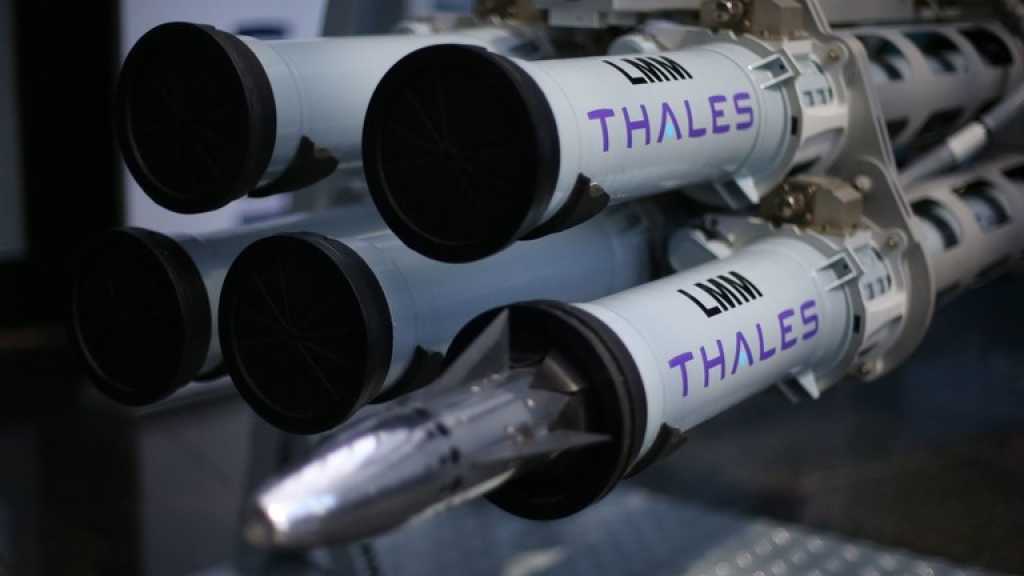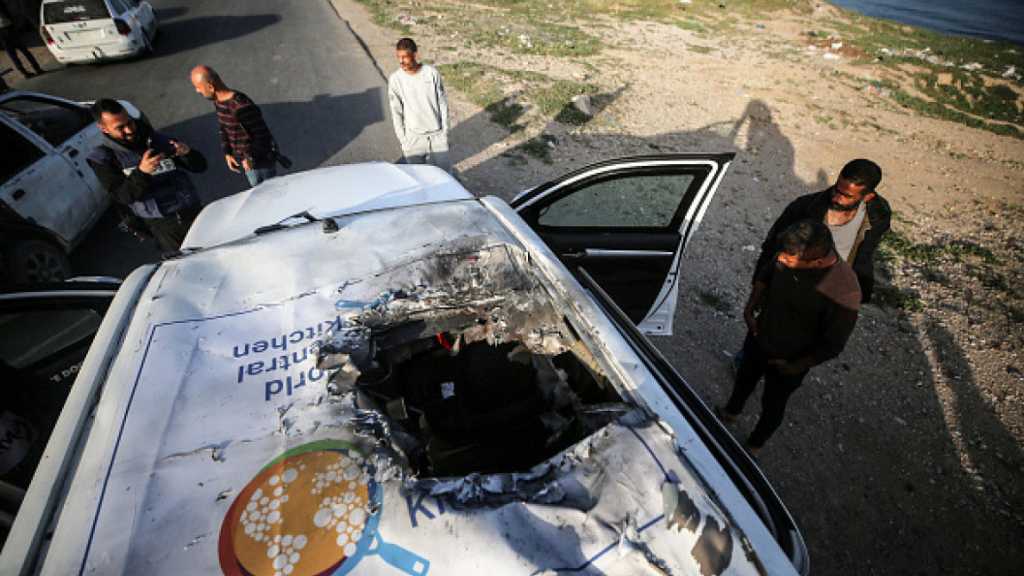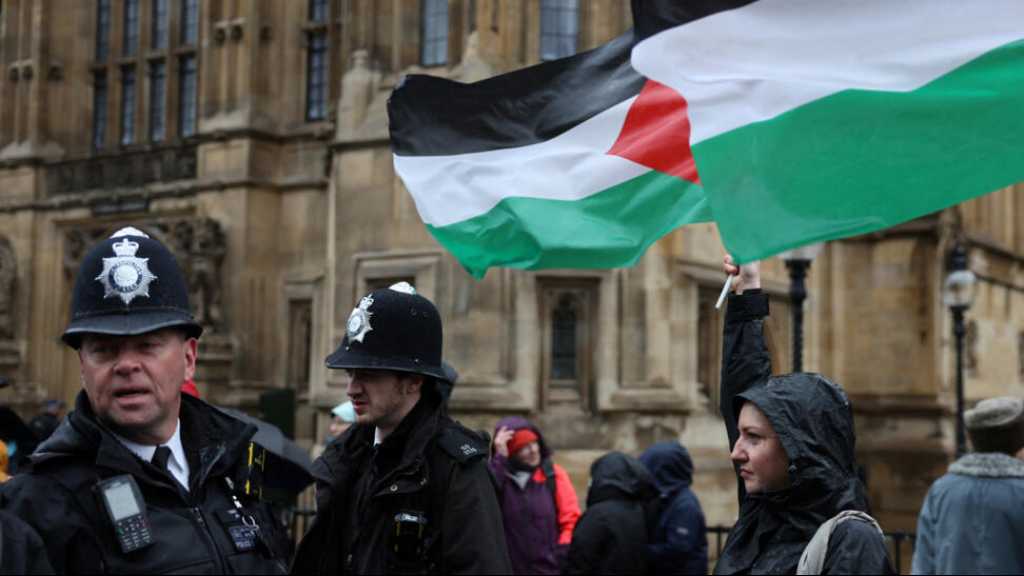
British-Palestinian 50 Days into Hunger Strike after Family Killed in Gaza
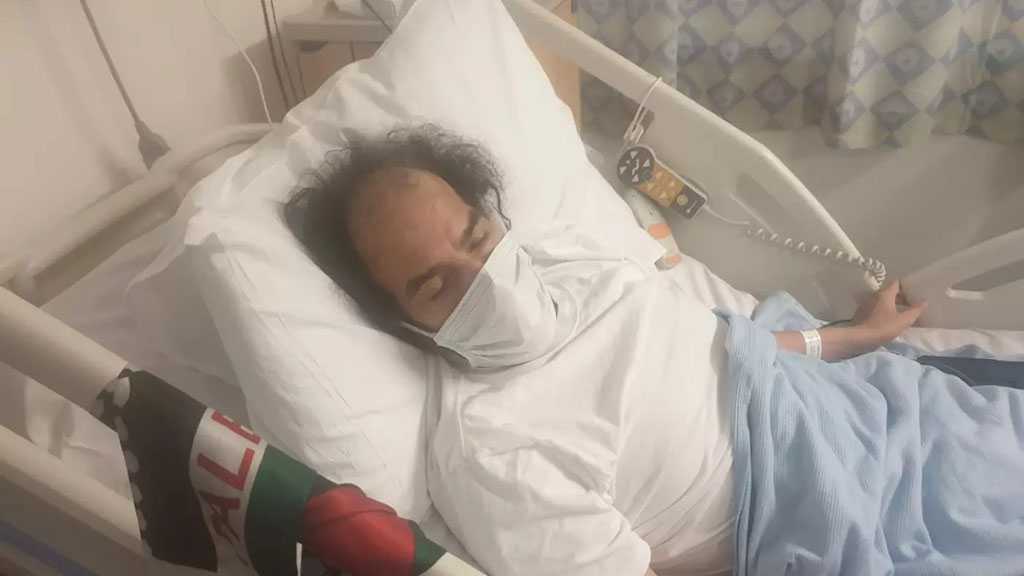
By Staff, MEE
Wael Arafat, 28, is currently unable to walk but remains conscious and talking.
The British-Palestinian has lost nearly 20kg since starting a hunger strike 50 days ago. He is demanding the UK government act to stop the “Israeli” entity’s two-month-long bombardment of the besieged Gaza Strip.
"I know I might die. I know something could happen to my health," Arafat said from a hospital in Bath, southwest England, where he is being treated.
"I don't want to die. I'm doing this for my own people who are suffering. Every person in Gaza is my brother and sister," he said.
Arafat, originally from Deir al-Balah in central Gaza, lost both his parents when he was five years old and was brought up by his grandmother in the besieged enclave, before moving to the UK as a young teenager.
He stopped eating and drinking on 22 October, after learning that his sister and her four children had been killed by an “Israeli” air strike on their home in Gaza City.
The apartheid “Israeli” entity’s relentless bombing campaign has killed over 18,400 Palestinians in Gaza, most of whom are women and children. It came after Hamas's October 7 surprise Operation Al-Aqsa Flood against the occupying entity in response to the “Israeli” regime’s decades-long campaign of bloodletting and devastation against Palestinians. Arafat only found out he had a sister in Gaza two years ago, and contacted her through his former neighbors.
"[My family] were telling me they're at home and they're safe," he said. "They told me they might have to evacuate. I asked them, where will you go? They said we don't know."
Two weeks into the war, Arafat spoke to his sister for the last time.
"My sister called me to tell me they'd stayed at home and they might die. That was the last call I had with her," he said. "I never got to meet her."
Deir al-Balah has frequently been the target of "Israeli" bombardment, including air strikes this month which killed scores of civilians.
"There is no safe place in Gaza," said Arafat. "People have been told to move but it's not safe to. We want to be heard. We want to say enough is enough."
Over the past week, Arafat has taken a small amount of fluids through an IV drip, after doctors told him his condition had seriously deteriorated.
He said he felt a hunger strike was the only way to make his voice heard.
"It's exactly what they do in [‘Israeli’] prisons," he said, referring to Palestinians who stop eating or drinking to protest their detention and inhumane conditions in “Israeli” jails. "They don't have a voice, they only have the hunger strike."
Arafat's adoptive mother, Patricia Davis-Thomas, said that his family in the UK were extremely worried about him.
"My whole family is upset. We want Wael to be well and to come home," she said. "I want him to know it's fine to protest but it doesn't mean he has to die because of it.
"We want him to continue to live, and then he can keep supporting the Palestinian people," she added.
Arafat was fostered by Davis-Thomas and her husband in 2009 after he arrived in the UK aged 14. She said they were given just "one line of information" about him at the time, but that she soon understood he was severely traumatized by what he had witnessed in Gaza.
"We didn't know anything about Palestine or about Wael," she said. "I told him after he came that I will always stand by him. He just needed somebody. He's very much part of our family."
Davis-Thomas said Arafat was struggling to cope with the devastation of his homeland over the past two months.
"He's reliving the trauma he experienced in Palestine," she said.
Arafat said he planned to continue his hunger strike until the British government backed a ceasefire.
"I want the UK government to do something, and I want the ‘Israeli’ government to stop killing people," he said.
His adoptive mother has written to their local MP, Chris Skidmore, to inform him of Arafat's condition.
"[Skidmore] sent me a long response about Hamas," Davis-Thomas said. "He didn't offer Wael any support. I told him all of this jargon is of no comfort to me – it doesn't help the people who are actually suffering."
Skidmore, who belongs to the ruling Conservative Party, is one of dozens of MPs who abstained from voting for the Scottish National Party's amendment calling for a ceasefire on 16 November. The amendment was voted down 294 to 125.
The UK government has received criticism over its support for the “Israeli” entity, including its licensing of over £472m [$591m] worth of military exports. British human rights groups are now taking the government to court over the sales.
Carla Denyer, a local councilor in Bristol and co-leader of the Green Party, went to visit Arafat in hospital on Friday.
"Wael told me he feels ignored by his MP and by the UK government," said Denyer. "He is not the only one. The Conservative government and Labor opposition are ignoring three-quarters of the UK population who want to see a ceasefire in ‘Israel’-Palestine."
Arafat said he hoped to return to Gaza in the near future.
"I dream of going back to Gaza," he said. "If I was there, I'd like to work for an ambulance service or a human rights organization. Anything to help."
